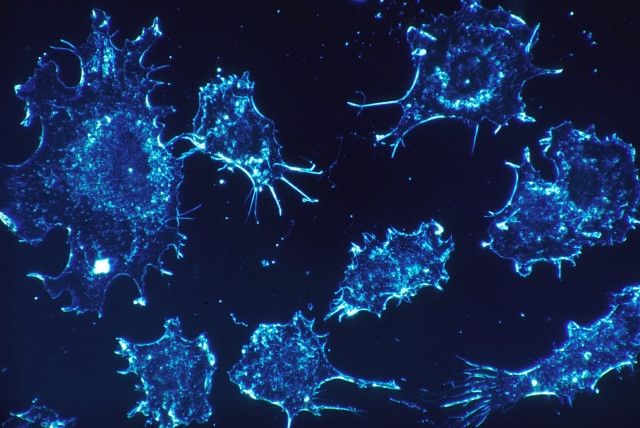Another breakthrough out of Israel is causing a stir in the medical world and it should be celebrated by anyone who cares about their health and that of the ones they love. The research has taken years, and the result is that Israeli researchers were able to delay the spread of skin cancer by 60-80%. The results were a part of a study conducted at the famed Tel Aviv University in which they printed human tissues using a 3D printer.
"We know that 90 percent of patients with melanoma eventually develop metastatic melanoma in the brain. This was our starting point and from there we focused on an important axis that we found to be activated when melanoma reaches the brain," explained Sabina Pozzi from the Faculty of Medicine at Tel Aviv University (FMTAU).
According to Professor Ronit Satchi-Fainaro, the head of the cancer research center at the FMTAU: "When the melanoma cells leave the primary tumor and circulate in the bloodstream, they already begin to prepare the ground in the brain where there are cells that they talk to."
Our study elucidating the mechanism that governs neuroinflammation which facilitates brain metastasis is out! Our unique 3D and in vivo models revealed the key role of MCP-1-CCR2/CCR4 axis in melanoma brain metastases. So proud of the brilliant @sabina_pozzi who led this effort! https://t.co/7Kc1DDM3HY
— Ronit Satchi-Fainaro (@RSFLab) September 15, 2022
"We printed the tumors that came from the patients (we researched), together with the blood vessels through which we inject the various treatments that we test on this tumor and see if it succeeds in delaying the progression of the disease," added Professor Satchi-Fainero. "The method of printing replicas of the same tumor several times allows us to try different treatments on it, and in the future, based on this we can decide which treatment is suitable for this particular patient"
Following the printed model, the researchers discovered that a drug that is already in existence prevents the spread of the disease.
"We used a drug called BINDARIT. It is intended for other purposes, not for cancer, yet still blocks this cancerous protein. When we treated with it in our models, we saw that we did delay the progression of metastases," noted Professor Satchi-Fainero.
#ICRFintheNews: A breakthrough discovery by an international team of researchers led by ICRF grantee Prof. Ronit Satchi-Fainaro of @TelAvivUni promises to make #immunotherapy available to all cancer patients. @RSFLab
— Israel Cancer Research Fund (@ICRFONLINE) August 10, 2022
Read more: https://t.co/adVEcZ3v7F pic.twitter.com/CurVDOBTBJ
"When something is already in a clinical trial, it's a good sign, because we've already solved the issue of toxins," Pozzi added, stressing, "Of course, it will take several more years because it's still in phase 2, but I'm confident and optimistic about it."
#ICRFintheNews: A breakthrough discovery by an international team of researchers led by ICRF grantee Prof. Ronit Satchi-Fainaro of @TelAvivUni promises to make #immunotherapy available to all cancer patients. @RSFLab
— Israel Cancer Research Fund (@ICRFONLINE) August 10, 2022
Read more: https://t.co/adVEcZ3v7F pic.twitter.com/CurVDOBTBJ
The news has reached researchers worldwide and was greeted with much excitement. Skin cancer is one of the most common forms of cancer and this promising research conducted by Tel Aviv University has the potential to save thousands of lives a year.
Cancer research in Israel is a top medical priority and constantly making headlines for its discoveries. Back in March of 2022, Israeli scientists from the Weizmann Institute discovered an antibody called CD40 that also prevents tumor growth. “We have found a way to make the antibody apply itself very selectively, so it just stimulates cells that give immunity and doesn’t impact other cells,” The Weizmann Institute said as part of their public statement.


